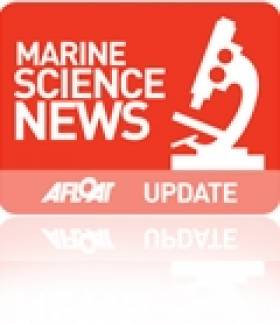Displaying items by tag: Strategy
RYA Northern Ireland is calling for anyone who has an interest in boating to take part in an interactive session to help develop the strategy for sailing, boating and windsurfing in Northern Ireland.
A high-level summary of the strategy, which will cover the next three to five years, was shared at RYA Northern Ireland’s Affiliated Club Conference this weekend.
An online consultation process will then open in the week commencing Monday 12 December and two online consultation sessions will take place on Tuesday 10 and Friday 13 January. All of these will help inform the development of the next stages of the strategy, the regional sailing body says.
RYANI’s chief operating officer Greg Yarnall says: “We are excited to begin further consultation on our new strategy and are looking forward to working with those who help make our sport happen.
“As part of this process, we will be sharing and asking for feedback on where we have got to so far. This will include the emerging strategic priorities, our values — beliefs and behaviours — and the guiding principles that will help us when making decisions.”
He adds: “These consultation sessions and online feedback sessions are vital as the strategy needs to feel relatable to the people involved in the sport, as participants or as volunteers, coaches, instructors or officials.
“We want the whole boating community to feel connected to the strategy and for it to be clear how everyone will be able to contribute to helping the sport prosper over the coming months and years.”
Places can be booked now via Eventbrite for the January interactive consultation sessions. And full details on the consultation process will be available on the RYANI website on 12 December.
The online consultation survey should take between 15-20 minutes, and the closing date for submissions is 5pm on Tuesday 17 January 2023.
This story was updated on Tuesday 13 December with a link to the online survey and details of the closing date.
Brush Up On Dinghy Racing Tactics & Strategy With The INSS
#INSS - The Irish National Sailing and Powerboat School (INSS) will host the first of its three-date series on dinghy racing tactics and strategy on Tuesday 3 April.
Multiple dinghy national champion and offshore helmsman Kenneth Rumball is holding this series of evening discussions to help dinghy sailors improve their race skills and awareness.
These evenings are specifically designed for dinghy sailors and will encourage attendees to ask specific questions on scenarios they have been in, and discuss the best solutions.
The three sessions will take place on Tuesday 3, Thursday 5 and Tuesday 10 April. Admission for all three, including complementary tea/coffee and course notes each evening, is €20.
New Marine Atlas Answers Important Questions
This second edition of the Atlas of the North Western Waters is now available for free download here. It has been funded under the EU MEFEPO (Making the European Fisheries Ecosystem Plan Operational) project, made up of ecologists, economists, management experts and fisheries scientists who are trying to make ecosystem-based fisheries management (EBFM) a reality in Europe. EBFM seeks to support the 'three pillars of sustainability' (ecological, social and economic) and as such includes human activity in the ecosystem.
The Atlas is intended for policy makers, managers and interested stakeholders. Its purpose is to provide a broad overview of the ecosystem of the NWW Regional Advisory Council (RAC) area with the science kept as clear and concise as possible and technical language kept to a minimum.
"Next year the European Marine Strategy Framework Directive requires an analysis of the features, pressures and impacts on member states' waters and the reform of the Common Fisheries Policy will put more emphasis on regionalising management," said Dr. Cormac Nolan of the MEFEPO project at the Marine Institute, "so this new edition of the North Western Waters Atlas, and the work of the MEFEPO team behind it, is both timely and valuable."
The first edition of the Atlas, published in 2009, was extremely well received and this 2nd edition has been updated and revised in response to stakeholder feedback. The Atlas provides up-to-date information on the physical and chemical features, habitat types, biological features, birds, mammals, fishing activity and other human activities taking place within the NWW region. There are new chapters on elasmobranchs and mariculture and the hot topic of discarding is covered in more detail. Background material on four NWW fisheries (mackerel, hake, Nephrops and scallop), which have been used as case studies in the MEFEPO project, is also presented.

























































